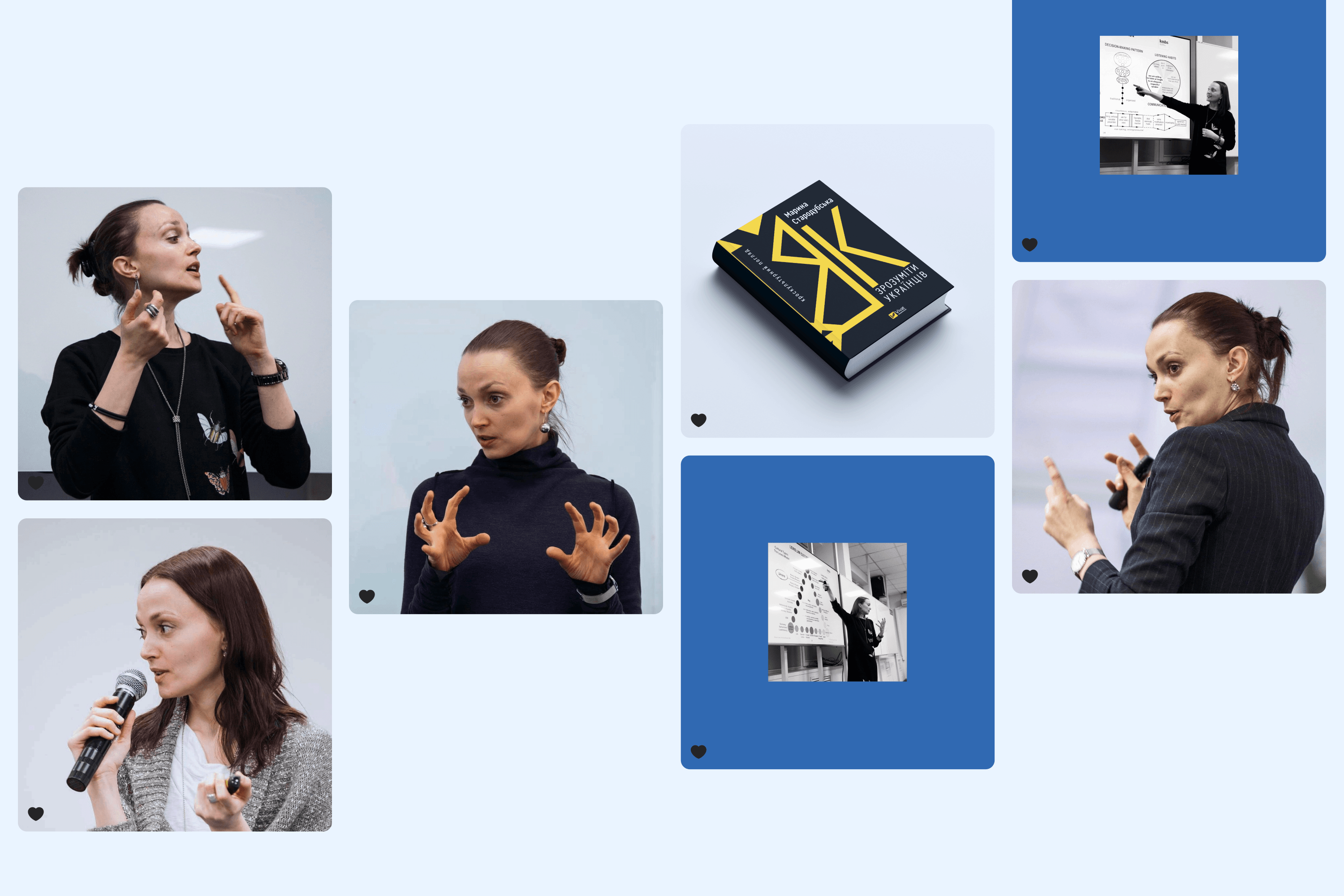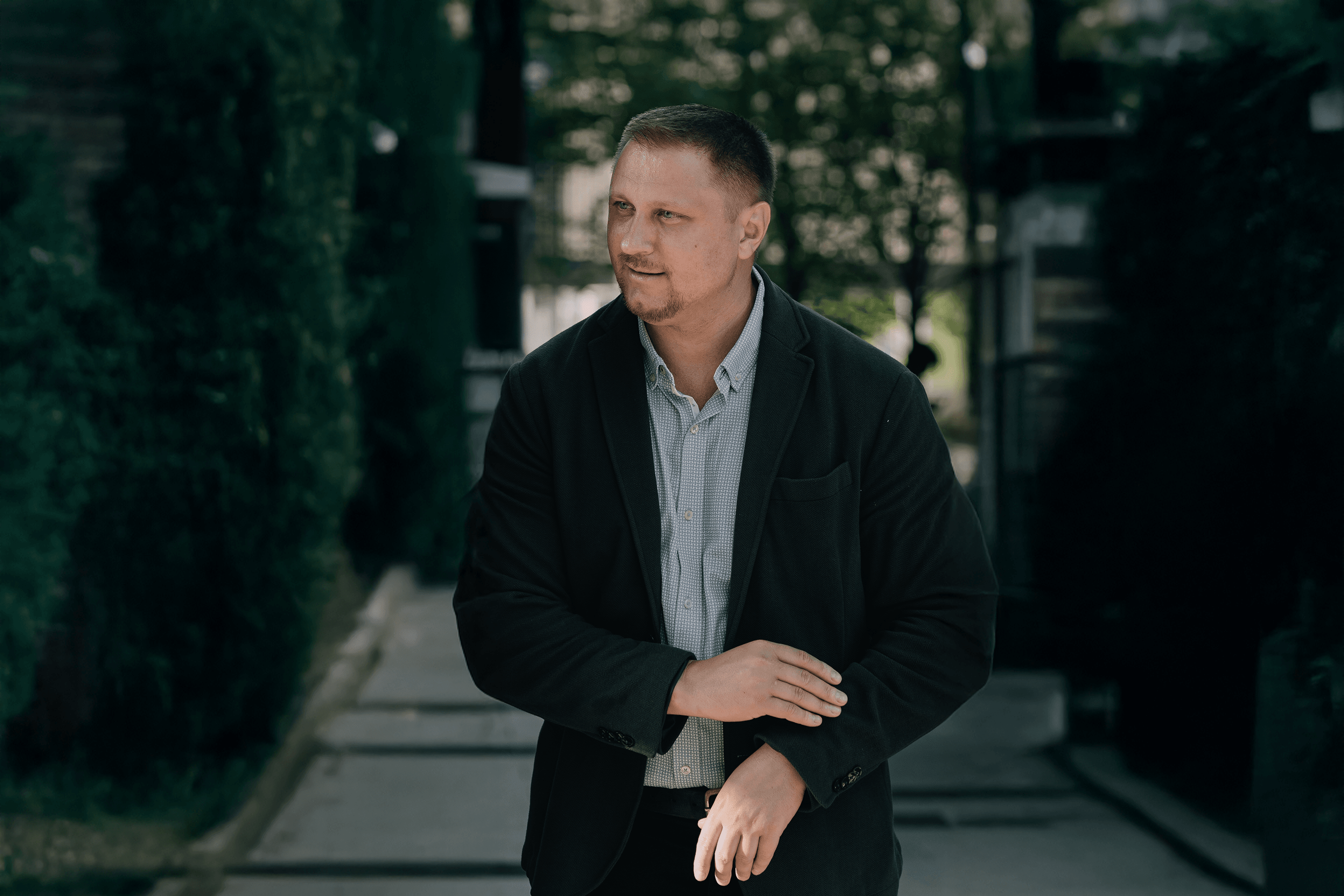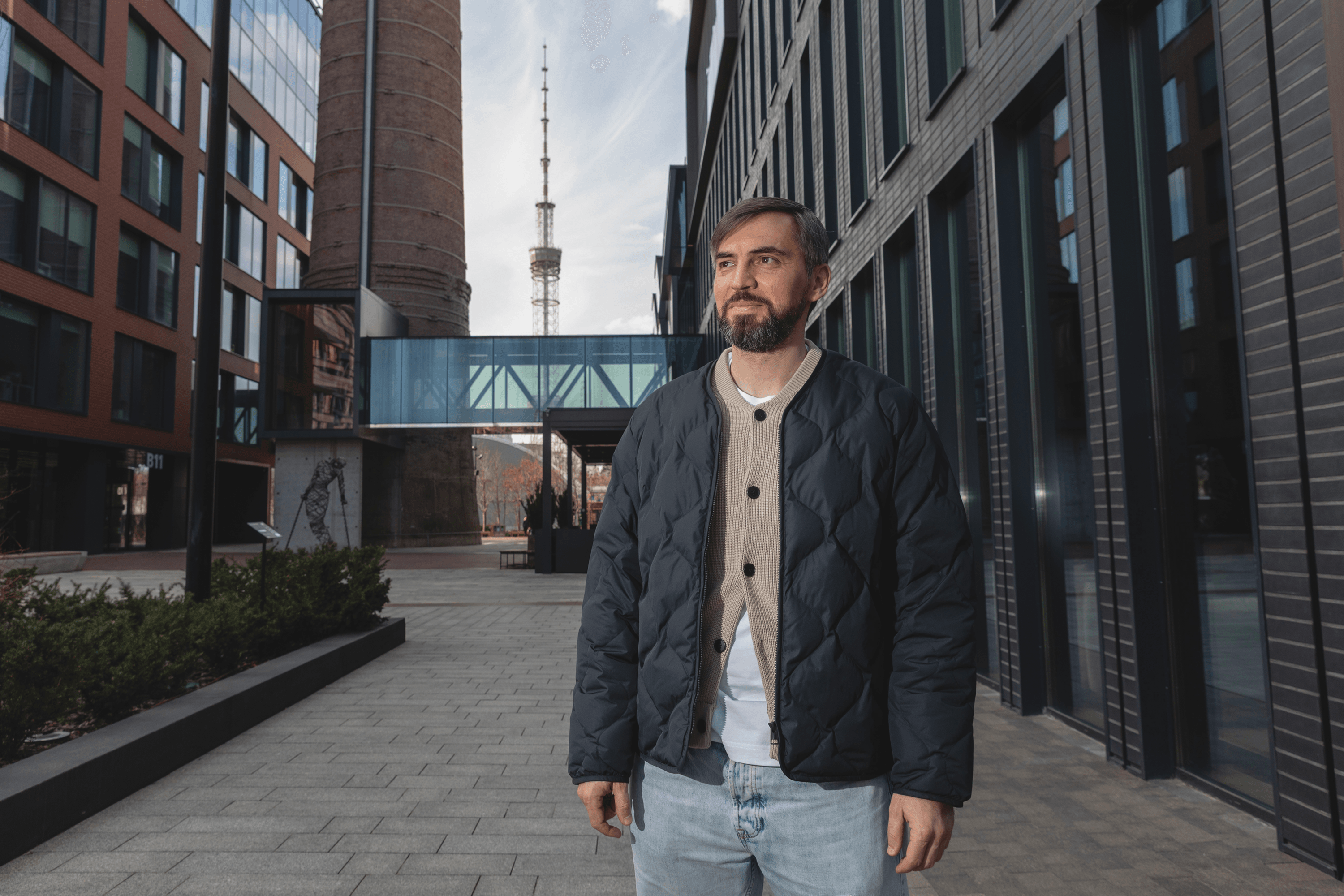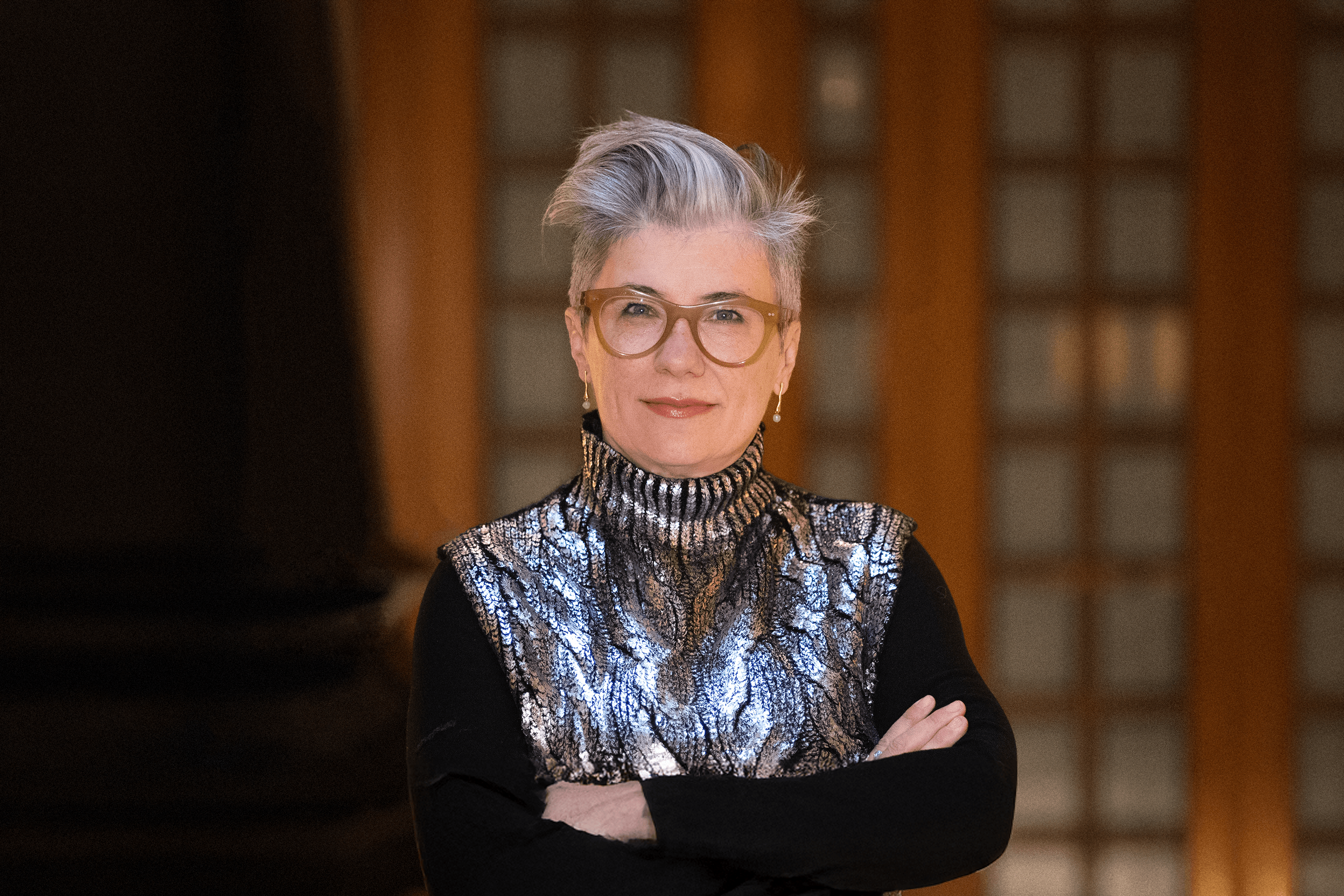In the fall of 2024, Maryna Starodubska published a book titled “How to Understand Ukrainians: A Cross-Cultural Perspective”. With a Master’s in People Management and Organisational Psychology from Birkbeck, University of London, Starodubska is an adjunct professor at the Kyiv-Mohyla Business School (KMBA), an expert in organizational psychology and cross-cultural dynamics, and a seasoned educator with experience at top international institutions.
In her book, she delves into the unique traits of the Ukrainian mindset, showing how complex historical and social forces have shaped the nation’s character. She explains why Ukrainians often distrust authority, engage in frequent debates, and tend to be confrontational, especially in online spaces. These patterns, according to Starodubska, are deeply rooted in the country’s cultural DNA.
In conversation with YBBP journalist Masha Zhartovska and Toronto municipal analyst Dmytro Ilchuk, Starodubska talks about how Ukrainian entrepreneurs view themselves abroad, why adapting to new societies can feel like an uphill climb, what cultural strengths Ukrainians bring to their new communities, and why, despite every challenge, holding on to one’s identity remains vital in a globalized world.
Masha: Let’s imagine a typical Ukrainian entrepreneur living abroad. What strengths do they typically bring to the table, and what traits might they be missing?
In Ukraine, work-life balance is often dismissed as a sign of laziness, especially during the active growth phase of a business. People who prioritize balance are sometimes even avoided when hiring. In the EU, however, a clearly defined workday and the right to personal time are protected by law. So, for Ukrainians entering those markets, it’s unacceptable to demand overtime from employees, especially without extra pay, as often happens back home.
In Western Europe and Canada, business operations are built on efficient systems, not personal sacrifice. Workplace culture also differs. Ukrainians tend to build close workplace relationships, thinking that familiarity makes it easier to be direct when giving negative feedback. But in most cultures, direct criticism may come off as rude or demotivating. Although there are exceptions, like the Netherlands.
Customer expectations also vary by culture. Ukrainians generally distrust systems and expect fast service. In Scandinavian countries, there’s no such pressure for speed, and in Latin America, urgency is rarely a concern. Ukrainians also expect a human touch: a chocolate with their purchase, a handwritten note, or a friendly chat at checkout as part of their shopping or service experience. That might surprise people in Sweden or Norway, but it wouldn’t feel out of place in Italy, Spain, or Argentina.
M: I’ve noticed our entrepreneurs often get frustrated that in Canada, it’s normal to reply to an email two or three days later, even a week later. Where does this inability to accept cultural differences come from, and the desire to reshape everything to suit ourselves?
It’s the legacy of having our identity deliberately suppressed for generations. I run at least three cross-cultural workshops every week, and the question I hear most often is: “Why should I have to change for someone else?” After fighting so hard and painfully to reclaim our identity, we tend to see behavioural adaptation as a betrayal, not a tool. But I always say: cultural awareness isn’t submission, it’s strategy.
Ukraine is often perceived as a monoethnic country, but that’s far from the truth. The Ukraїner project has identified at least 22 ethnic communities within Ukraine, including, for example, Vietnamese communities. We are, in fact, a multicultural society. Anyone who shares our values, speaks the language, and sees themselves as part of the country can be Ukrainian. Being Ukrainian is a political identity, not an ethnic one.
Yet here’s the paradox: we live alongside many cultures, but we know very little about them on a societal level. There’s a real gap in Ukraine when it comes to studying the cultural mindsets and social behaviours of others, even those within our borders. That’s something we still need to work on: understanding one another better and how to adapt to cultural diversity.
M: In Ukraine, both our education system and broader society seem to lack a real grasp of cross-cultural awareness. How does that impact Ukrainians trying to work on the international stage?
I teach not only in Ukraine — at the Kyiv-Mohyla Business School — but also three European universities: in France (the Magellan Institute), and Estonia (the University of Tartu and Tallinn University of Technology). In all of them, a course on cross-cultural communication is mandatory. Without it, they simply won’t graduate. In Ukraine, such a course doesn’t exist yet.
We haven’t built a culture of cross-cultural thinking into our education or upbringing. Hofstede, the founder of cross-cultural management theory, once established, there’s such a thing as “social programming”: from childhood through family, kindergarten, school, and university, people are prepared to live in a diverse world. Ukraine still lacks this kind of ‘programming’ because our institutions don’t yet reflect cultural diversity. I’m not referring to European-style multiculturalism, which is currently facing its own crisis. What I mean is in Ukraine, we rarely have serious conversations — in schools, in media, or in business — about the unique mentalities of groups like Crimean Tatars, Jewish Ukrainians, or others who call our country home. If these discussions were more common, our entrepreneurs and leaders would be better equipped to navigate those differences.
Before Russia’s full-scale invasion, we weren’t really present on the global stage, whether in politics or business. The war pushed us out into the world, whether we were ready or not. Now we’re learning on the go. It’s like trying to ride a bike while assembling it at the same time. Entrepreneurs, activists, artists — they’re all improvising, making mistakes, and only afterwards realizing what should have been done differently. But this learning path often comes at a high cost.
Dmytro: How do you think Ukrainians, whether as individuals or businesses, can successfully adapt to new cultural environments today? Not by competing to be “the best”, but by showing their value and ability to collaborate?
When I work with companies and students in a cross-cultural setting, I always encourage them not to label cultures as strong or weak, effective or ineffective. A national culture is a bit like metabolism, it’s the survival system a country has developed over time. Northern peoples like the Sámi or Inuit, on the other hand, have a traditional diet of mostly fats, berries, meat, and fish. Now, imagine putting a typical Ukrainian on that diet? That’s how culture works, too. There’s a logic behind it, and cross-cultural studies help us decode it.
A national mindset — including the Ukrainian one — is shaped by history, geography, population density, wars, colonization (and being colonized), neighbours, and countless other forces. As historian Yaroslav Hrytsak pointed out in a video on Ukrainian history, our land has always been contested — often by several empires at once, fighting over the same territory. We live on a frontier, where rulers changed frequently, and each new conqueror imposed their own rules. Institutions were often temporary, punitive, foreign, or ineffective. So people survived by relying on their inner circle of trust.
In cross-cultural studies, this is known as familism when people trust primarily their own family. But research shows that high levels of familism tend to correlate with lower economic development. When trust is limited to one’s family, access to broader expertise is limited, and that access is crucial for success in a world that extends far beyond a single town or village. Still, familism helped Ukrainians survive historically, family was the one support system that didn’t betray them in times of crisis. That’s why we come together in hard times, like ants working toward a shared goal, as quick to fall back into infighting once the threat passes.
We’re used to constant change, and that’s where our strength lies in our high adaptability. We learn fast, adjust quickly, and get things done. But when we land in a new culture, we need to pause, observe, and avoid the trap of assuming everything should work the same way it does back home. Take a Ukrainian travel agency working in Estonia. If they want to succeed, they’ll need to know that Estonians value predictability and well-structured services, not a long list of options requiring custom assembly. Or take coffee culture: in Ukraine, it revolves around cafés; in the Baltics, it’s more about coffee machines. To succeed, it’s essential to understand what local customers actually see as value and then tailor your approach accordingly.
M: What should international partners know about working with Ukrainians?
I get this question all the time, it’s one of the most popular topics when I speak to international audiences. And it really comes down to a few key factors that shape our national mindset. Ukrainians generally do not trust the state or its systems. So, whether you’re working with Ukrainian migrants, clients, or partners, personal communication will always work better than referring them to a generic government website. In Ukraine, official websites are often outdated or inaccurate. What’s written and what actually works are frequently two different things. That’s why, in online communities of Ukrainian women abroad, especially in European countries, you’ll often see posts like: “Ladies, I need this type of document, what’s the real process?” followed by, “Because the official site says one thing, but how does it really work in practice?”
D: And after that, you get flooded with advice, much of it distracting or off-topic.
Exactly, because we trust people, not systems. I often explain this to Scandinavians, especially in Sweden and Denmark, where the relationship between citizens and the state is entirely different. There, the government has never used violence against its people. For Swedes and Danes, the state is like a parental figure, the king and queen are seen as father and mother figures. In Ukraine, the state has historically ruled through force, and in some cases, it still does. That history explains our deep-rooted fear of state institutions.
Another important thing foreigners should understand about us is that we are a culture shaped by totalitarian trauma, where betrayal often came from within. That’s why directness and sarcasm are seen as the ultimate form of honesty in Ukrainian culture. Ukrainians often struggle to grasp the politeness common in Canada and the U.S., interpreting it as insincere. For us, the highest form of trust is to say things directly, to tell someone what’s wrong. For example, I once got a message on LinkedIn that said: “Hi Maryna, thanks for your book, it’s excellent. Here are (ten things) that are wrong with it”.
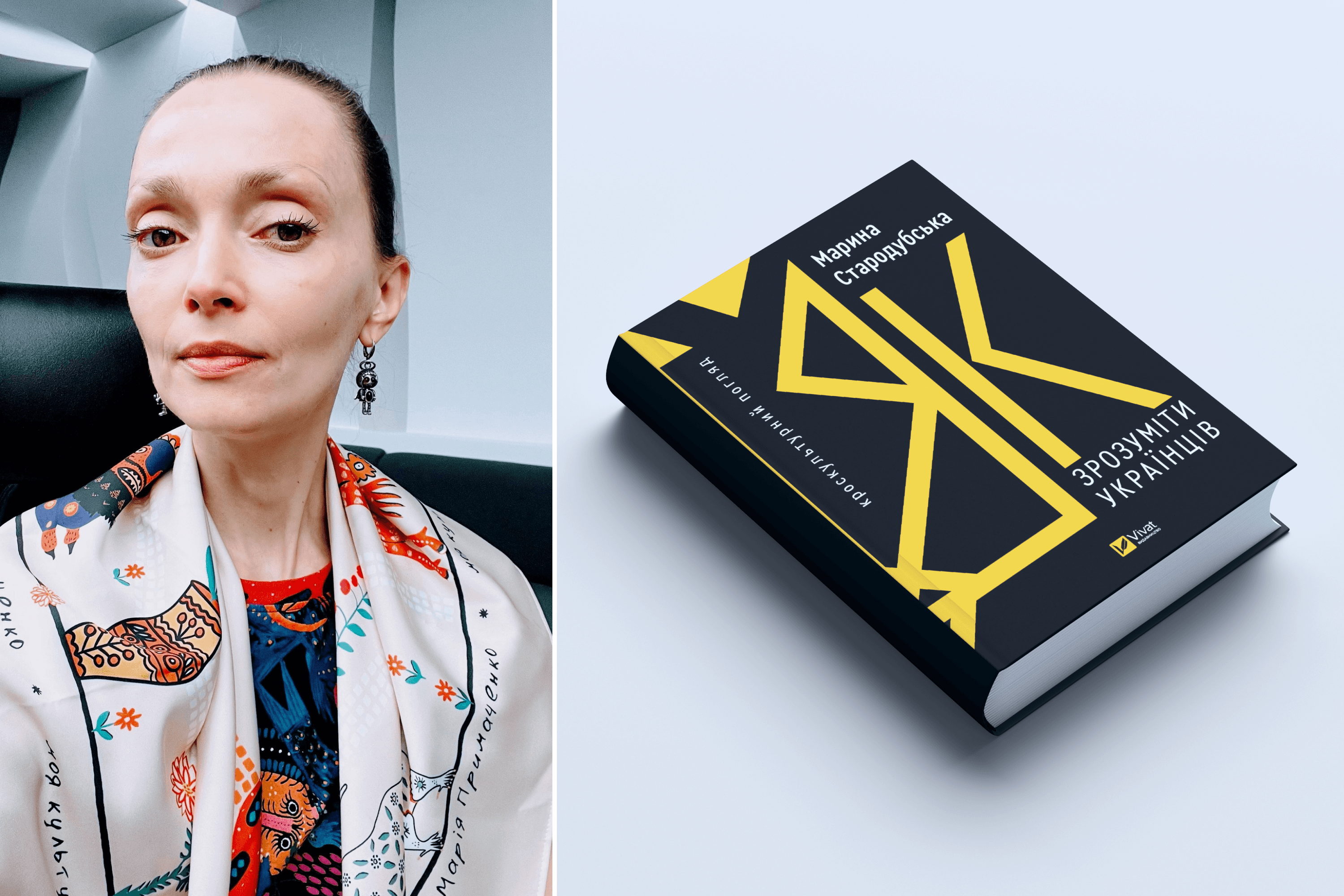
M: In our culture, that kind of feedback means the person genuinely cares about you.
Exactly. They genuinely want to help. But imagine my reaction if I weren’t Ukrainian, that kind of message could be quite jarring. That’s why people from Anglo-Saxon, African, Latin American, and many Asian cultures need to understand this, because such directness isn’t considered polite in those contexts. Even in most European countries, communication tends to be more tactful, though Estonians, Germans, and the Dutch are somewhat closer to us in this regard.
And here’s another key point: we are a relationship-oriented culture. We view all interactions, even business ones, through a human connection: how others perceive us, how we perceive them, do they respect me, can I trust them? The quality of feedback a Ukrainian gives, along with their sincerity and initiative, depends directly on the level of trust they feel within the team. With strangers, Ukrainians tend to be more reserved, less forthcoming, and less proactive.
D: In Canada, I’ve mentored many newcomers, and I still find this puzzling: Syrians, Afghans, Venezuelans, and Brazilians often seem to adapt to the Canadian system much more quickly than Ukrainians. They grasp how things work, integrate into society, find jobs, even in the public sector. Meanwhile, many Ukrainians applaud good advice, but almost no one follows it. In your view, why do Ukrainians sometimes reject clear and effective steps toward integration?
We simply don’t have experience interacting with effective public institutions. Most Ukrainians have never seen what a functioning state system looks like — one where the rules apply equally to everyone, regardless of connections or social status. That’s why we rely so heavily on personal experience. We’re used to learning through trial and error, often painfully. It’s what we call “stepping on the same rake”.
What you’ve described, Dmytro, is something I see regularly in my work. Nine out of ten cross-cultural consulting requests we receive come after something’s already gone wrong. It’s rare for someone to reach out in advance to understand the culture before launching into a new market, hiring a team, or building a partnership. It’s only when their own experience fails and leads to losses that Ukrainians begin to look for other ways. We’re used to learning by stumbling through, while theory is often seen as optional. Only a few of us are willing to take the hard step: to set aside our own experience and try to understand the logic of the host country’s culture. Those few are the ones who end up adapting the fastest.
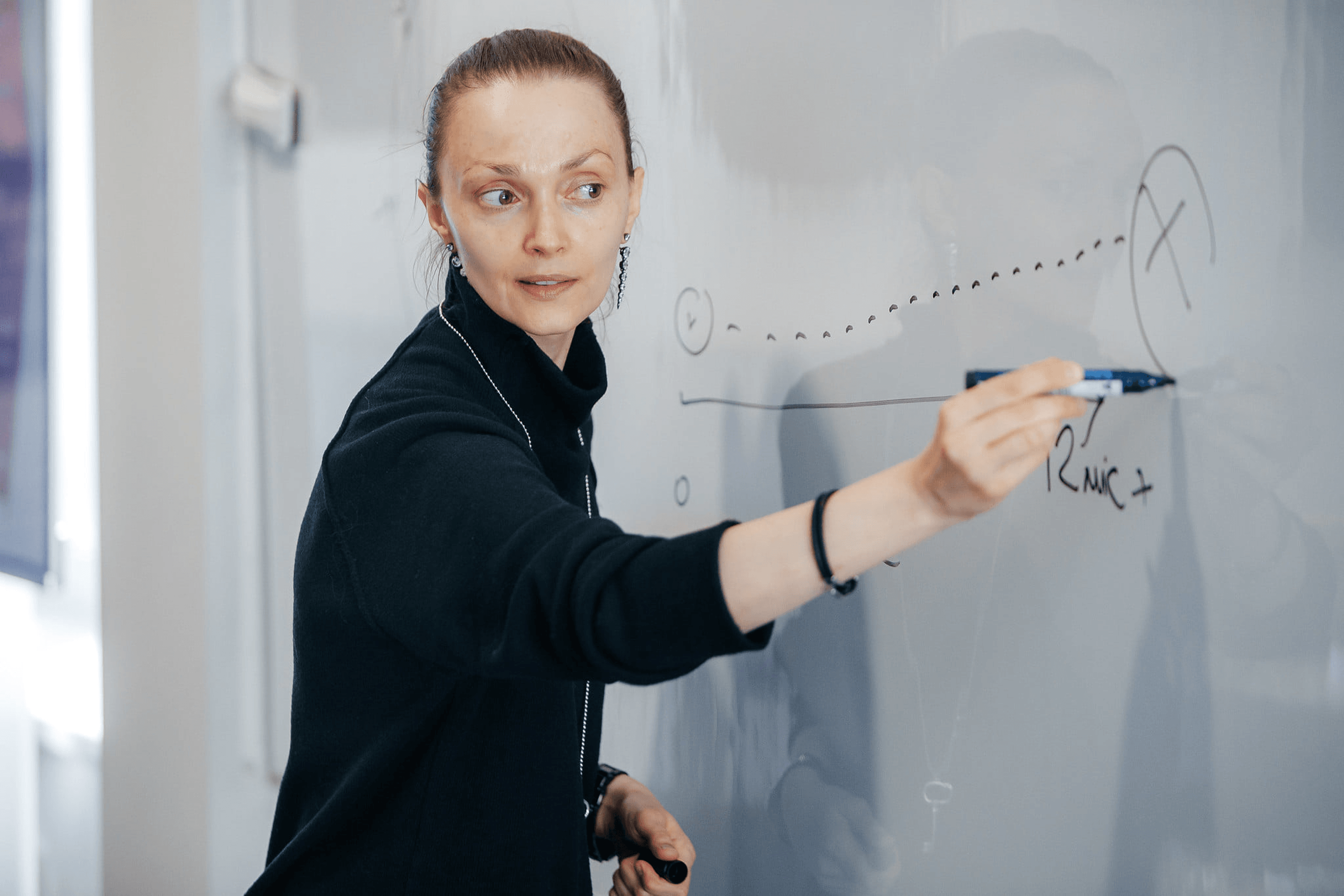
D: Do you think Ukrainians who’ve successfully integrated abroad can help others adapt?
Adaptability isn’t just a skill you can learn overnight — it’s more of a personality trait. Some people have it, others don’t. And for those who don’t, adjusting to new conditions, especially abroad, can be quite challenging. Culturally, we often view adapting to another culture as a betrayal of our own identity. Because we haven’t been taught the basics of cross-cultural communication, we frequently can’t distinguish between a change in values and a normal response to a new environment. For instance, behaving more reservedly or gesturing less in public, as is common in Estonia, doesn’t mean you’ve stopped being Ukrainian. It simply shows cultural flexibility, not a loss of identity.
According to Hofstede’s model, Ukrainians score very high on uncertainty avoidance — 95 out of 120. That means we don’t do well with unpredictability, change, or unfamiliar situations. Even though our history is full of crises, it hasn’t made us more comfortable with change. Instead, we’ve inherited collective trauma. To paraphrase an old saying: what doesn’t kill us doesn’t necessarily make us stronger — sometimes it just wears us out. That’s why you see low trust in government, each other, tensions between social bubbles, and a tendency to see any change as a threat. And that’s not good or bad, it’s just a part of our cultural profile. But if we start to see change not as chaos, but as a challenging roadmap, it becomes less intimidating. That mindset shift is already a big step toward conscious, confident adaptation in a new culture.
М: Can Ukrainians abroad actually come together and support one another when there’s no crisis or stress?
There’s a concept in cross-cultural studies called generalized social trust. It refers to how two strangers with no prior connection are willing to trust each other in a society. In Ukraine, this level of trust is quite low. Even in the best of times, it has never reached 30%. That means 50–70% of Ukrainians believe that outside of their trusted circle of friends and acquaintances, people cannot be trusted. And that’s in good times. This means that before someone is accepted into that inner circle, interactions tend to stay surface-level. There’s polite formality, but no deep cooperation or real partnership. A person must first go through a process of ‘being accepted as one of us’ before any real trust and, therefore, effective collaboration can be established.
For example, if you form a new team of Ukrainians who don’t know each other, especially if they’re accomplished professionals in the industry, that team won’t be immediately effective. Clear rules need to be set, roles assigned, and time given for team members to get to know each other. Trust must be built with both colleagues and leadership. If a Ukrainian doesn’t respect their leader, they simply won’t follow them. Mutual respect is essential for effective teamwork. That said, we’re very capable of following rules when we see that they apply equally to everyone. This is one reason why Ukrainian migrants are so highly valued in many European countries: we’re hardworking and law-abiding in systems where laws are consistently enforced.
Two major forces affect Ukrainian cohesion abroad. One is divisive — political differences. According to the latest research by the Institute of Sociology, 62% of Ukrainians say political disagreements are the biggest barrier to unity. It’s hard for us to connect with people whose political views differ from our own. But there’s also the other unifying and powerful force — belief in a better future, which brings us together around a common goal.
One more important cultural trait: we often interpret “unity” as a call for personal closeness or even friendship with those who see the world differently. But that’s not what unity really is. Unity doesn’t require unconditional acceptance. It means understanding that we can be different, yet still share a core set of values that make us Ukrainian. When we see unity this way, it becomes much easier. After all, we are a multicultural nation with a complex history and diverse regions — of course, we’re not the same in every way. But we are united by common values.
М: Many Ukrainians abroad seem hesitant when it comes to pursuing further education, even though it’s often a direct investment in their career growth. How can this mindset be changed?
Think about how many employers, unfortunately, often for good reason, view higher education in Ukraine. It’s seen as something not always essential or practical. So when I explain the scientific cross-cultural foundations of business practices, people often ask: “Why didn’t we learn this 5, 10, 15 years ago?” My answer is: “Because you were taught differently”. Our education system is improving, but in many fields, it’s still not where it needs to be if we want graduates to get the knowledge they can apply directly in real life. I teach in international programs with students from around the world — Japan, Israel, the UK, Estonia, Ukraine, South America, and Asia. And I often see brilliant Ukrainian students double-check deadlines that are already clearly listed. They’ll approach me to try and renegotiate assignment terms even when all requirements are clearly outlined because that’s how things often work in our system. In many Ukrainian institutions, students are still used to “chasing down” information and “negotiating” their way through. Re-evaluating that experience and changing one’s approach isn’t easy.
М: Does a person’s region of origin in Ukraine affect how well they adapt to life abroad? For example, I’m from Zaporizhzhia and you’re from Kryvyi Rih.
Not at all. Adaptability isn’t tied to geography — it’s a personality trait. Someone from Lviv, Kryvyi Rih, Kherson, or Odesa can be equally adaptable. What makes a difference is self-awareness, the ability to reflect on your behaviour and adjust when needed. You’ve got to be willing to work with your own “default settings”. Take this example: in Ukraine, it’s normal to bond by venting to a colleague — sharing frustrations is how we build closeness. But in Canada, that kind of interaction can come off as emotionally overloading for the other person. If I’m aware of that and make a conscious choice to adapt, then the cultural gap becomes easier to navigate.
I’m deeply convinced that Ukrainians don’t need to be “fixed” or “reprogrammed”. There’s nothing wrong with us. We just need to become more aware of our cultural wiring and learn how to work with it wisely. At the same time, we need to respect how people from other cultures are wired, too.
М: Are there cultures Ukrainians naturally click with, ones we find it easier to work with?
Cross-cultural interaction is always a two-way street. If the other side isn’t open to adapting, the effect is limited. But in terms of cultural distance, we’re actually quite close to countries like Argentina and Colombia, and we tend to connect fairly easily with Poland and the Baltic states. There are also some notable cultural similarities with African countries, though not all of them. The greatest cultural distance exists between Ukraine and Confucian Asia: China, Taiwan, Hong Kong, Japan, Korea, and Vietnam. So, adapting to these cultures generally requires more effort. Interestingly, though, Ukrainians and Indians share several cultural traits. So working together can feel unexpectedly familiar.
